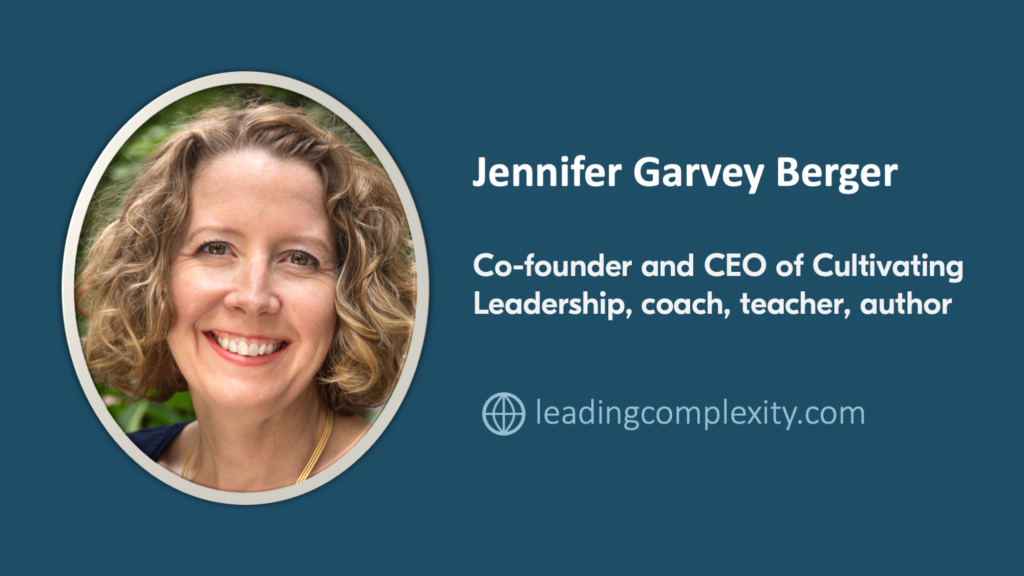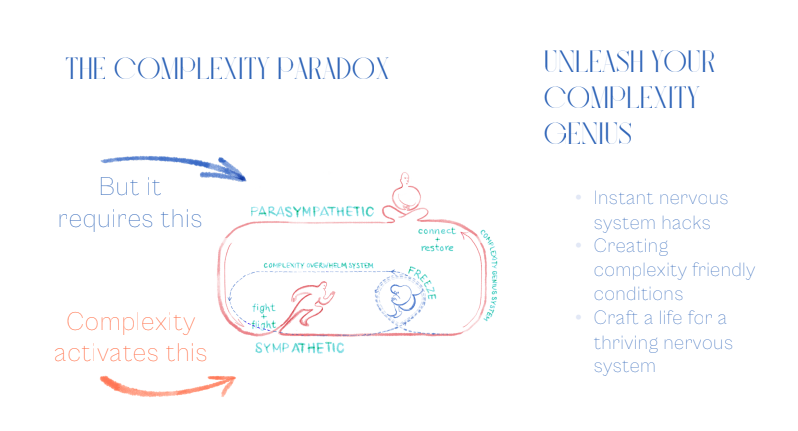
First out in our second season of the Leading Complexity Program was the fantastic Jennifer Garvey Berger.
She did an amazing job of framing the whole program and connecting the participants with each other. Jennifer explained how we all experience complexity in our daily lives. She started with a question: How do you experience complex challenges?
The most common words that were answered were:
- frustration, anxious, uncertain, scared, not in control
- curious, excited, challenged
Mainly negative, but how can you get to the other side with positive experiences?
Then she explained that we already have the resources to deal with complexity. This is what she calls the complexity genius, also the title of her latest book.

In her research for the book, she went back to the nervous system. We have two main parts: sympathetic and parasympathetic. Normally, they work together in a perfect dance. In the sympathetic we take action. It is also known as the fight, flight, or freeze mode. In the parasympathetic, we de-stress and relax. This chilled-out state is basically your body’s optimal setting for making well-thought-out decisions.
So, the parasympathetic nervous system is most suitable for dealing with complex challenges.
How can we move ourselves to activate the parasympathetic nervous system?
Jennifer takes us through several concrete practices that help us unleash our complexity genius. What you need to do is:
- instant nervous system hacks
- creating complexity-friendly conditions
- craft a life for a thriving nervous system
Some practical things to do then are breathing, noticing, moving, wondering, laughing, experimenting, and laughing. The participants in the session added many more things that work for them when trying to do a shift in the nervous system.
She emphasized that we can intentionally create complexity-friendly conditions. This will enable the above practice to happen more often. For example, laughter is one of the best nervous system hacks and is also key for connection. An interesting finding is that laughter is not mainly about anything funny. It is about creating trust and connection. Another hack is shifting to a space of curiosity, playfulness, and experimentation.
At the end of the talk, Jennifer asks us to remember our complex challenge: How are you feeling in this moment as you reflect upon that challenge?
The most common words answered then were:
- curious, excited, hopeful, joyful, inspired, open, aware, energized, at peace, centered, interesting
A big shift from the initial exercise. So already during the call, we had a shift accessing our complexity genius.
Thank you, Jennifer, for helping us hack our nervous system and learn how to unleash our complexity genius!
If you want to experience the full session with Jennifer and the rest of the speakers, sign up at Leading Complexity Program.



